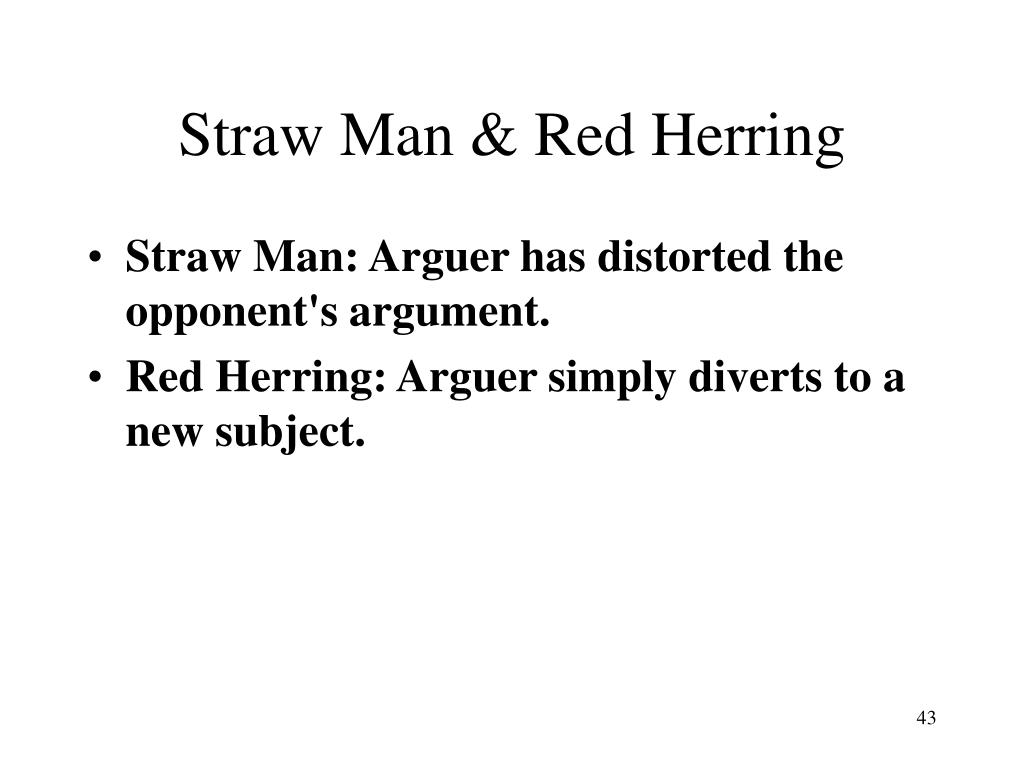

It may also be referred to as ‘smoke-screening’, ‘sidetracking’, ‘hair-splitting’ or ‘digression.’. A red herring in literature is a narrative element that is used to throw off readers and lead them to false conclusions. It’s an extremely common tactic in debating and political discourse. “Red-Herring.” Texas State University,, //“Red Herring Examples: Fallacies of Misdirection.” . In essence, red herring fallacy is a form of changing the topic of conversation for personal gain. “Red Herring: Using Irrelevant Information as a Distraction.” Effectiviology. According to Merriam-Webster, “The practice of using preserved fish to confuse hunting dogs led to the use of the term red herring for anything that diverts attention from the issue at hand.” Preserved herring not only have a reddish color to them, they also have a strong smell - a smell that was ideal for use as a method of throwing hunting dogs off their trail. The Merriam-Webster dictionary notes that the term red herring, unsurprisingly, stems from the art of distraction. The red herring fallacy is therefore sometimes described as a fallacy of misdirection or distraction. Your problems will seem pretty insignificant then.” Mother: “Just think of all the starving children in Africa, honey.

It is an intentionally made distraction to move the argument or a question to a different issue that is easier to respond to. Here’s another example of the logical fallacy (and bad parenting) on display, provided by Texas State University’s philosophy department:ĭaughter: “I’m so hurt that Todd broke up with me, Red Herring Fallacy The red herring is an attempt to divert the attention away from the relevant issue by introducing another, irrelevant issue. The use of a red herring in this context demonstrates how, as a literary device, the red herring can be used in order to create suspense, and make it more difficult for readers to predict the conclusion of the story. For example, if a politician is asked how they feel about a certain policy, they might use the red herring fallacy by discussing how they feel about a related topic instead, to distract people from their failure to answer the original question. Why is red herring fallacy bad Here, the fallacious red herring is used to distract viewers from the original topic. The red herring fallacy is a logical fallacy where someone presents irrelevant information in an attempt to distract others from a topic that’s being discussed, often to avoid a question or shift the discussion in a new direction. Topic B is introduced under the guise of being relevant to topic A (when topic B is actually not relevant to topic A). Definition A Red Herring is a fallacy in which an irrelevant statement is made in order to divert attention from the argument at hand. When it comes to rhetoric, the use of red herrings is often referred to as the ‘red herring fallacy’. Also known as Smoke Screen, Wild Goose Chase. The psychology and philosophy website Effectiviology described the fallacy this way: In essence, red herring fallacy is a form of changing the topic of conversation for personal gain.


 0 kommentar(er)
0 kommentar(er)
